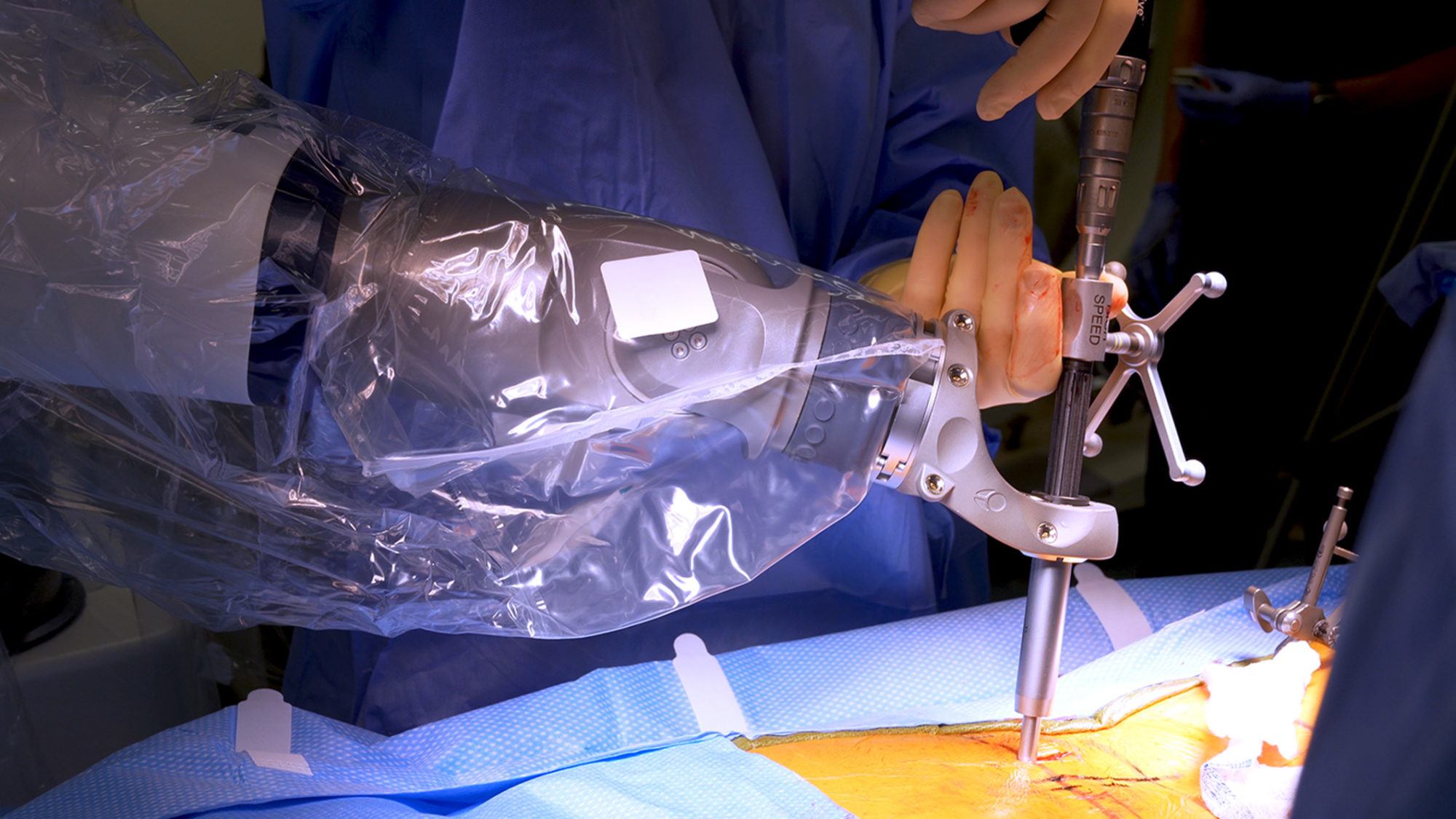
Robotic Spine Surgery
What is robotic spine surgery?
Robotic spine surgery, or robot-assisted spine surgery, describes the use of robotic technology to assist with guidance during spinal neurosurgery.
Traditionally, neurosurgeons have placed instrumentation in the spine “freehand,” relying on their knowledge of anatomy and on X-rays. They must maintain steady hands as they operate near important nerves in small corridors—especially with today’s minimally invasive procedures, which involve much smaller incisions. Spine surgery can also be long and laborious, making neurosurgeons susceptible to mental and physical fatigue.
Robots can perform repetitive tasks with virtually unlimited endurance and without decreased performance, minimizing the chances of fatigue-related errors and potentially resulting in more consistent outcomes for patients. Robots can also improve the accuracy of procedures—such as those involving the placement of rods or screws—by eliminating the issue of unsteadiness in a surgeon’s hands, moving to exact programmed positions, and allowing surgeons to make precise movements while operating in small spaces and in patients with challenging anatomy.
Additionally, using robotic guidance instead of image guidance minimizes radiation exposure for the patient, surgeon, and other operating room staff.

What is robotic spine surgery used for?
Robotic systems have been used successfully in the following spine procedures:
- Anesthetic block for nerve pain
- Correction of spinal deformities
- Minimally invasive anterior, lateral, and posterior fusion
- Minimally invasive decompression
- Revision surgery after previous surgeries for conditions such as spondylolisthesis, stenosis, spondylolysis, vertebral fractures, and osteomyelitis
- Spinal fusion
- Tumor resection
- Vertebroplasty for compression fractures in the spine
Am I a good candidate for robotic spine surgery?
You may be a good candidate for robotic spine surgery if you need to have one of the procedures listed above. However, the use of robotic surgery varies widely. It depends on factors such as physician training and equipment availability. Talk to your doctor about whether robotic spine surgery is an option for you and how it compares to other techniques.




